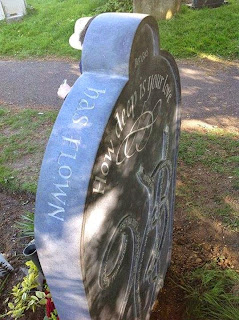It took ten
years to the final editing and mastering of the disc you now can listen to on
the cd box :Saved by the Bell
In the box
you find three compact discs
Disc 1
Robins Reign ...and Plus
the plus
stands for 9 bonus tracks
Disc 2 Sing slowly Sister Sessions :
There was
never a finished master of the Sing Slowly Sister album.
But now
after ten years the fans can listen and enjoy
the complete album.
Disc 3 Robin's Rarities
A compilation of previously unissued songs and also some BBC interviews and aired songs.
Andrew Sandoval, the reissue producer added some demos from 1968.
The tracks from 1968 are:
12. The Band Will Meet Mr. Justice (demo),
13. The People's Republic Poke Song (demo),
14. Indian Gin and Whiskey Dry
15. The Girl To Share Each Day (demo),
16. Come Some Halloween Or Christmas Day (demo),
17. Heaven In My Hands (demo).
Indian Gin And Whiskey Dry (demo) and Come Some Halloween Or Christmas Day (demo) should have been credited as B, R & M compositions, although only Robin plays on these demos.
(The package had already gone to production when this mistake was noticed.Source Robin Gibb.com)
Thanks to the great remastering ,mixing and Audio restorations the songs sound excellent.
http://beegeesfanfever.blogspot.nl/






